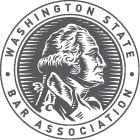What is Procrastination?
Procrastination is an avoidance behavior that can be a serious issue for lawyers. While it carries the stigma of lack of willpower or just plain laziness, procrastination can be a very distressing experience! Procrastination is the counterproductive act of voluntarily putting off essential tasks or actions until a later time, despite expecting to be worse off for the delay. It can impact the quality of your work and cause stress, guilt and a loss of productivity. It can also result in failure to meet standards of professional conduct and responsibility, and may lead to disciplinary action.
Ultimately, procrastination makes you feel out of control, which in turn only leads to more difficulties, as well as possible negative consequences from clients, colleagues and anxiety and feeling overwhelmed. It can also result in failure to meet standards of professional conduct and responsibility, and may lead to disciplinary action.
Causes of Procrastination
- Perfectionism makes work into a high pressure activity that you are more likely to avoid
- Poor impulse control and tendency to be easily distracted
- Underestimating the time necessary to complete a task or project
- Fear of evaluation of your abilities by others
- Fear of success and expectations of continued effort
- Feeling anxious or overwhelmed about a task or project
- Feeling incapable of successful completion of a task
- Boredom associated with a particular task or project
- Feeling too tired to work effectively
Strategies to Address Procrastination
Create manageable windows of work time. Set up blocks of time lasting 30 minutes; during that time, work on one and only one task. Even the toughest job may feel bearable if managed in a structured way.
- Allow yourself to focus. Only respond to phone and email during specified times during your day.
- Eliminate distractions. For every one minute you’re interrupted, it takes four to regain your focus. Do what you can to avoid losing concentration with distractions, and avoid interruptions as much as possible.
- Develop a routine. Notice what sharpens your focus, and incorporate it into your environment and routine as often as possible. A consistent routine and work-friendly environment may help facilitate a more productive state of mind.
- Prioritize your work. Once you have a sense of what’s most important, plan your work accordingly. Don't allow bottom of the list tasks to replace top of the list tasks just because they're easier.
- Organize the project. If you can't get yourself to start on a task, it could be that you simply haven't identified the next step necessary to move it along. Make an outline of what needs to be done, and assign dates.
- Break it down. If you know what to do and are still unable to take the next step, it's possible that it is too big. Break down a task or step into smaller ones, and do the first one.
Additional Resources
When Procrastination Rears Its Ugly Head, Dan Crystal, Psy.D.
Lawyers, Anger and Anxiety: Dealing with the Stresses of the Legal Profession , Rebeccca Nerison






